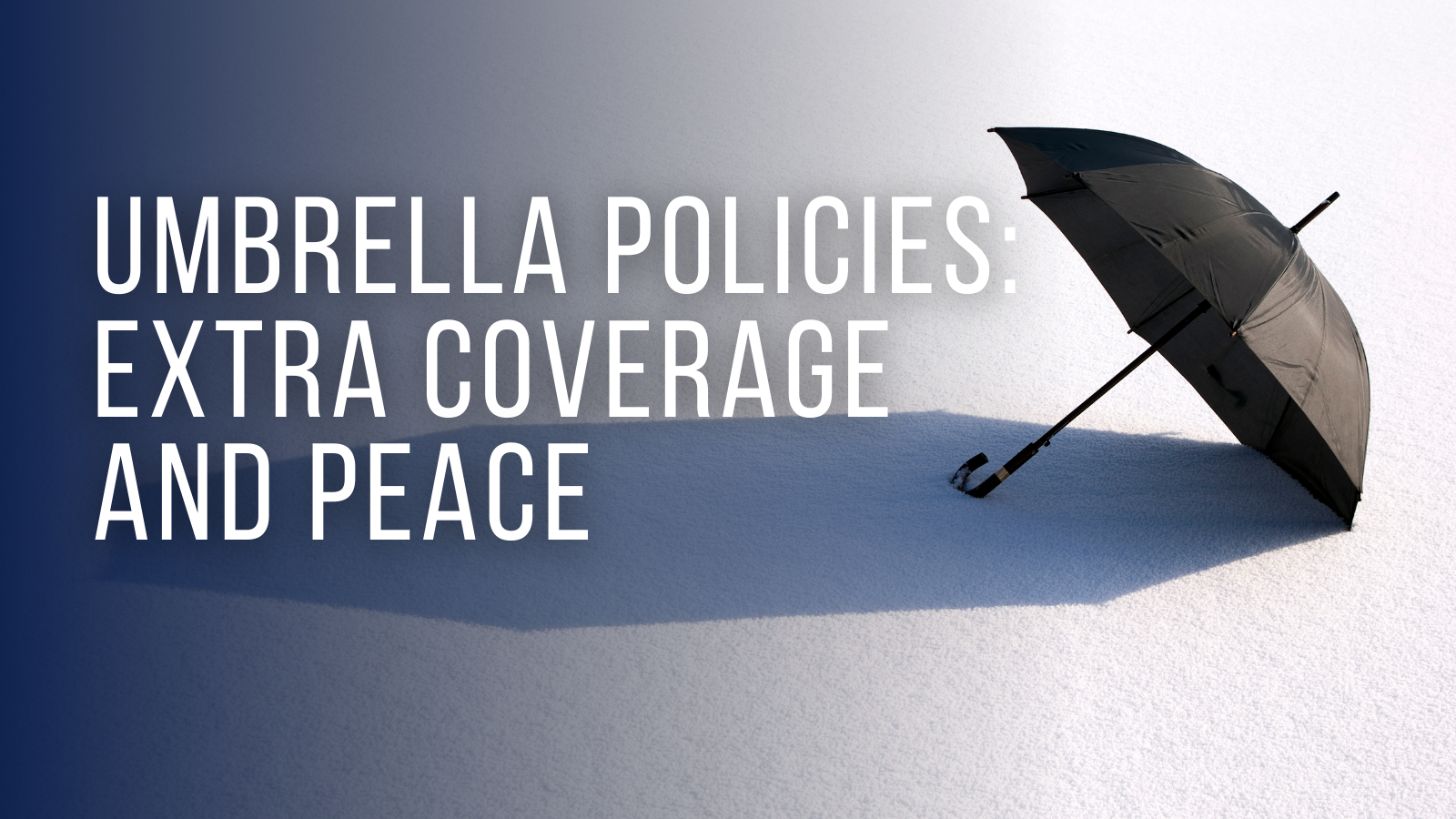Umbrella Policies: Extra Coverage and Peace
Submitted by Neville Associates on July 1st, 2021
Additional insurance to protect your assets and future
Why doesn’t anyone ever tell you not to buy an umbrella liability policy? It seems like additional overall security for pennies. Sure, you can spend pennies paying for something you don’t need or will never use, but isn’t that the argument against all insurance? Let’s run some numbers and see if this kind of policy protects you.
As financial planners, we help people make good money decisions, including protection of what you’ve accumulated over the years or are about to accumulate. To those ends, an umbrella liability policy adds another layer of insurance to your home and auto liability coverage. Umbrella liability usually comes in increments of $1 million and costs maybe $200 a year for the first million and less to cover additional millions of value.
Who Needs an Umbrella Policy?
Umbrella liability beefs up regular coverage for those who might need more protection: the rich, those with swimming pools, trampolines, nasty pets or owners of more than one car – especially if a teenager drives one of them. Travel a lot to dangerous parts of the world? Throw a lot of wild parties? Throw those wild parties at your beach house with lots of high surf right near it? You might need a little extra coverage.
If you’re like most middle-class folks, though, you might have $100,000 equity in a home, $100,000 in retirement accounts and $25,000 in savings. If your auto and home liability coverage is $300,000 or more, why get this additional coverage? In many cases, don’t: most retirement accounts offer creditor protection. So now you only need protection for your $125,000 of equity and savings, right?
Well, maybe – that’s the rub. Think of lawsuits and government judgments from the likes of the Internal Revenue Service, awarding plaintiffs millions and leaving you destitute. If you don’t have enough assets they can get to, they might garnish your wages (remember, garnishment ordered by a federal court can seize only 25% of your weekly disposable income, even less in some states’ courts).
What an Umbrella Policy Covers
So, what does an umbrella liability policy cover? Well, according to the National Association of Insurance Commissioners:
Bodily injury liability. Covers the cost of damages to another person's body, such as medical bills and liability claims as a result of injuries due to an auto accident that’s your fault, harm to others caused by your dog (you probably should have taken him to obedience school), injuries to a guest in your home because of a fall or injuries to a neighbor's child who trips while playing in your yard.
Property damage liability. Covers damage or loss to another person's tangible property. Examples include damage to vehicles and other property as a result of an auto accident that’s your fault, damage claims incurred when your pet shreds a friend's priceless Oriental rug or accidental damage to school property caused by your child.
Owners of rental units. This helps protect against liability you may face as a landlord. Examples include the claims’ cost as a result of someone tripping over a crack in the sidewalk of your rental property and suing you, or your tenant’s dog biting someone who holds you responsible for the cost of injuries.
Slander. You’re also covered if you’re sued for slander or libel (injurious spoken or written statements), false arrest, detention or imprisonment, malicious prosecution, shock or mental anguish and other personal liability situations.
An Example
Consider this example of an auto accident – your fault, of course – where others are hurt to the tune of $500,000. The bodily injury limit on your auto insurance tops out at $300,000. Who covers the remaining $200,000? Your umbrella policy.
It does not cover:
- intentional damage by you or a member of your family or household;
- damage related to a business activity;
- profession claims connected to an agreement or contract;
- claims resulting from owning, maintaining and using non-traditional recreational vehicles such airboats, jet skis and planes;
- damage to your own property;
- damages covered by workers’ compensation insurance; or
- claims in relation to insurrection or war.
Of course, your policy will have specific language as to what is and is not covered, but at least now you can begin thinking intelligently about whether you need one. Because our protection improves in many cases.
Call me if you wish to discuss whether an umbrella policy is right for you.
Important Disclosures
Content in this material is for general information only and not intended to provide specific advice or recommendations for any individual.
This information is not intended to be a substitute for individualized legal advice. Please consult your legal advisor regarding your specific situation.
All information is believed to be from reliable sources; however LPL Financial makes no representation as to its completeness or accuracy.
This article was prepared by RSW Publishing.

